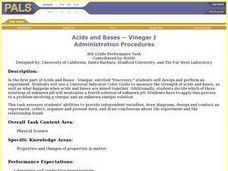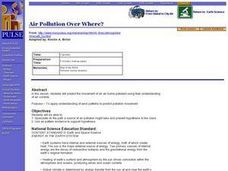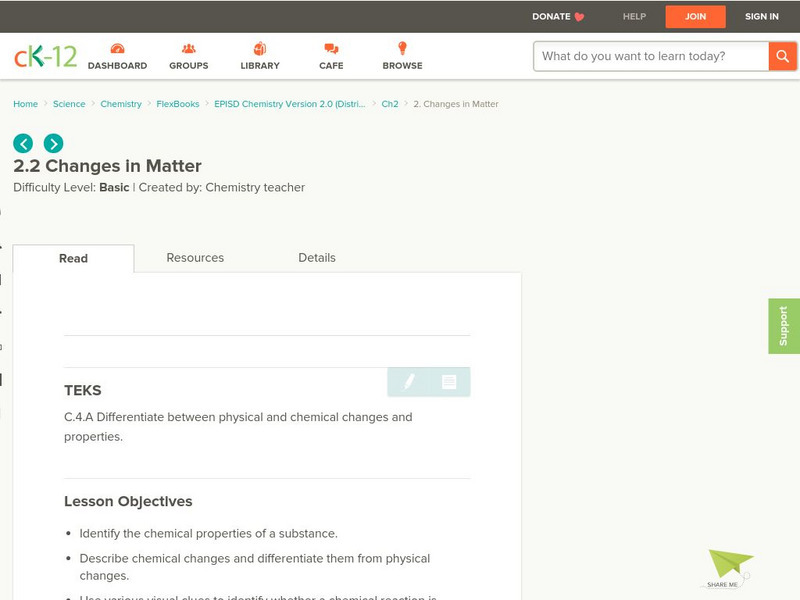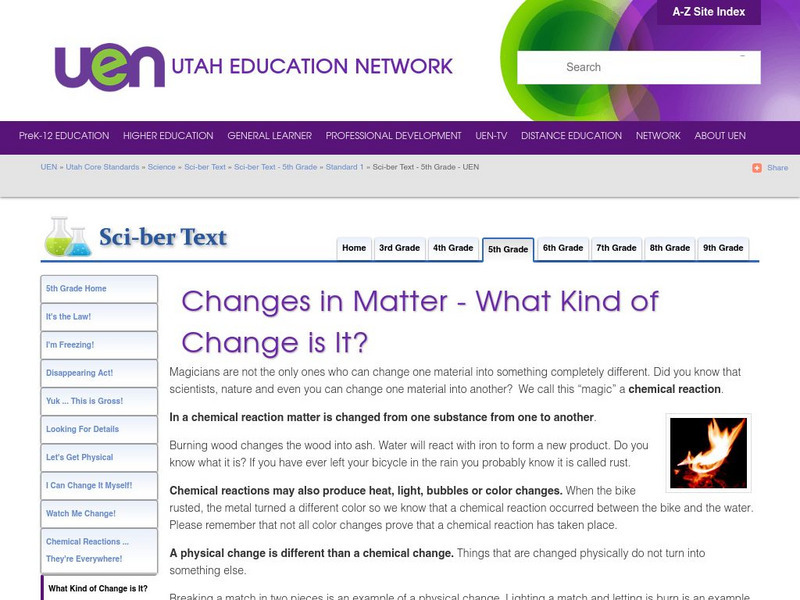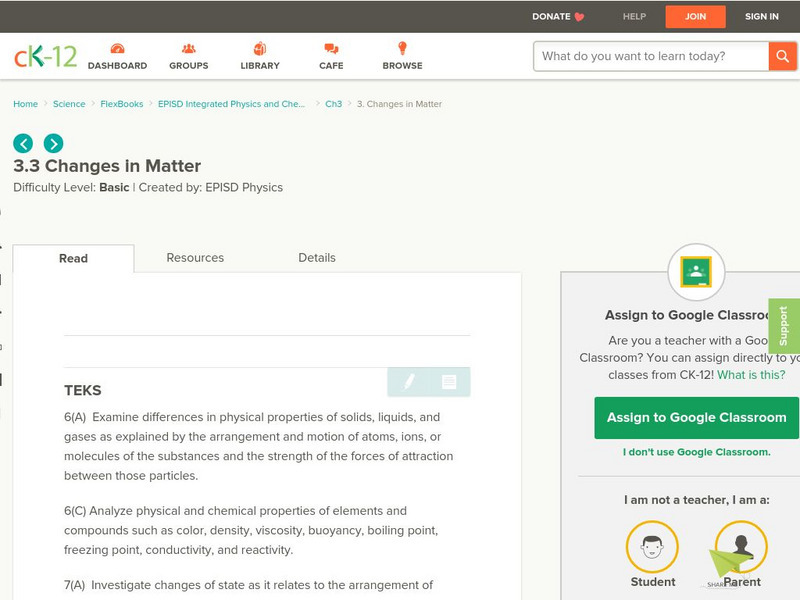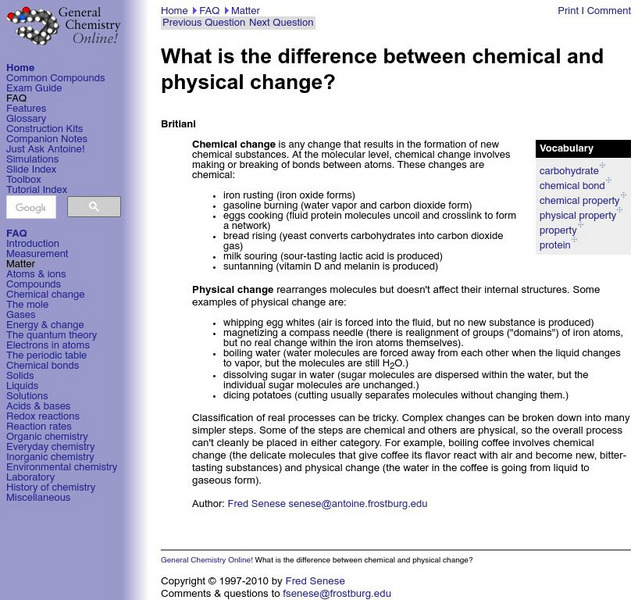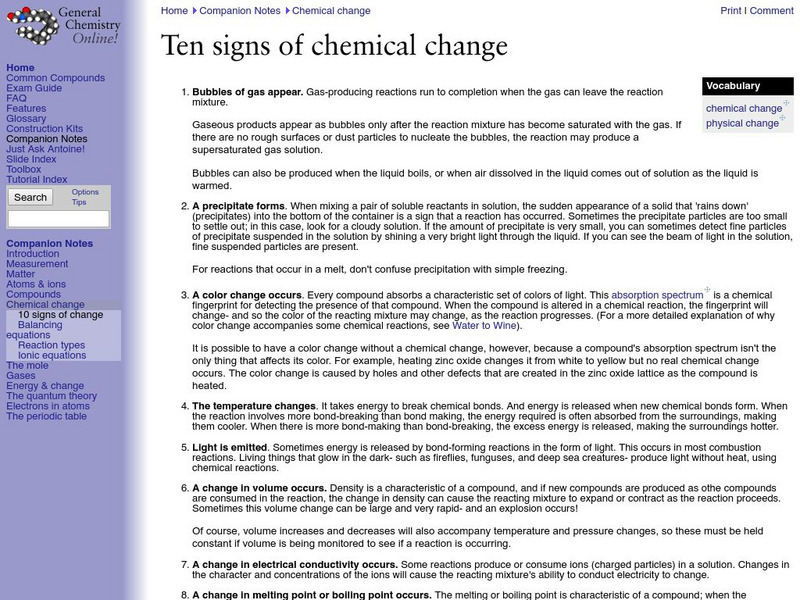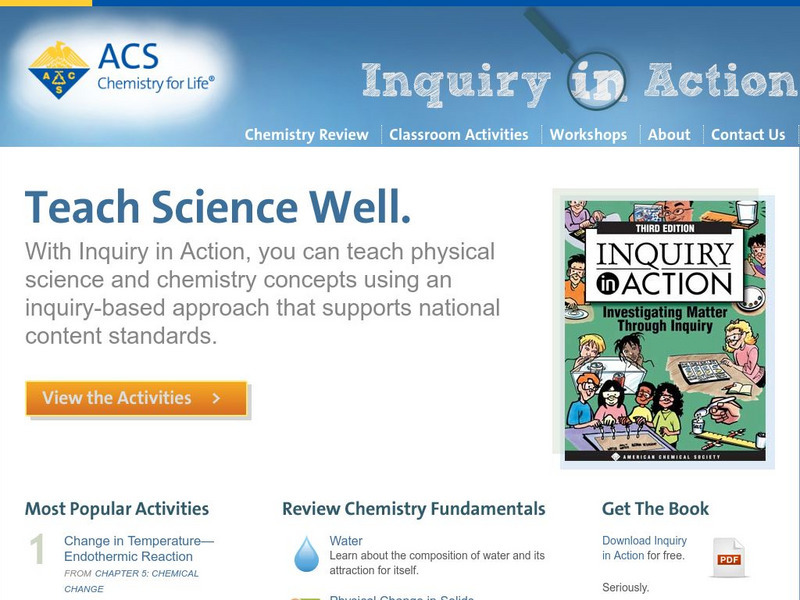Curated OER
Acids And Bases -- Universal Indicator
Eighth graders design and perform an experiment that uses a Universal Indicator Color Guide to measure the strength of acids and bases. They also determine happens when acids and bases are mixed together. They decide which of three...
Curated OER
Fallout!
Students plot the locations of fallout from two disasters that polluted much of the world's air. They plot the ash fallout from the 1980 Mt. St. Helen's eruption to see what the wind patterns in the United States look like overall. Next...
Curated OER
Air Pollution Over Where?
Young scholars predict the movement of an air borne pollutant using their understanding of air currents. They determine which governments and/or communities should be contacted to be forewarned. They also explore the properties of their...
Curated OER
A Message in a Bottle
Learners investigate the motion of water currents by mapping the possible movement of messages cast into the ocean in bottles.They accurately plot the appearance of bottles on a world map and illustrate the flow of an ocean current...
Curated OER
Where My Peeps At?
Students conduct a series of activity that demonstrates Charles' and Boyle's Law. In this chemistry lesson, students determine the relationship among pressure, volume and temperature. They solve problems using mathematical equation.
Curated OER
Effects of Ozone in the Air
Fifth graders learn how ground-level ozone is an air pollution problem. Students measure ozone levels and graph the results.
Curated OER
Taking In The Heat
Pupils discover that different textured materials can absorb more heat than others. Students work with thermometers, clocks, and graphs.
Curated OER
Oxidation And Corrosion
Students sort tarnished metals by type and experiment with different cleaning solutions and techniques to restore them to their natural color and shine.
Curated OER
Making Paper
Students explore how natural earth materials are processed into a human-made product. They simulate a manufacturing process by making paper. Students review the importance of recycling in preserving our natural earth resources.
Curated OER
Air Masses
Students examine the physical characteristics of several types of air masses to discover how air masses can be identified and defined by their temperature and moisture content.
Curated OER
Blood, I Presume?
Students explain the value of blood in trials. In this DNA lesson students work together to collect and share information and ideas that they come up with after learning how to distinguish blood from other stains.
CK-12 Foundation
Ck 12: Fifth Grade: Physical Science: Physical and Chemical Changes in Matter
[Free Registration/Login may be required to access all resource tools.] Provides the definitions of physical and chemical changes in matter and gives examples. The law of conservation of mass is also described.
CK-12 Foundation
Ck 12: Changes in Matter
[Free Registration/Login may be required to access all resource tools.] In the following online tutorial students identify the chemical properties of a substance and describe chemical changes and differentiate them from physical changes....
eSchool Today
E School Today: What Is Matter
Learn about matter, its three states, changes of state, how matter behaves, and physical and chemical changes in matter.
Other
Science4 Us: Changes in Matter
Through an instructional video, games, and activities, students explore three types of change matter makes: physical change, in which only the shape of the matter changes; physical phase change in which matter changes to a different form...
Utah Education Network
Uen: Changes in Matter What Kind of Change Is It?
Can you distinguish physical changes from chemical changes? After reading a brief summary of both types of changes, you'll be presented with some examples and asked to identify them.
CK-12 Foundation
Ck 12: Changes in Matter
[Free Registration/Login may be required to access all resource tools.] Students will describe methods for separating mixtures, such as chromatography, distillation, fractional distillation, evaporation, and filtration. They will also...
Frostburg State University
General Chemistry Online: Physical and Chemical Changes
Resource provides information about the difference between physical and chemical changes. Includes a definition and examples of each.
Utah STEM Foundation
Utah Stem Action Center: Changes in Matter
The goal of this activity is to develop and use a model to describe that matter is made of particles on a scale that is too small to be seen. You will be making observations of changes supported by a particle model of matter.
Frostburg State University
General Chemistry Online: Ten Signs of Chemical Change
Resource provides the ten signs that tell when a chemical change has occured. Each sign has a detailed explanation.
American Chemical Society
American Chemical Society: Inquiry in Action: Teach Science Well
Online textbook reviews fundamentals of chemistry and physical science via slideshow presentations, notes, and videos. Materials for classroom activities engage students in inquiry-based, hands-on investigations covering molecular...
American Chemical Society
American Chemical Society: Inquiry in Action: Teach Science Well
Online textbook reviews fundamentals of chemistry and physical science via slideshow presentations, notes, and videos. Materials for classroom activities engage students in inquiry-based, hands-on investigations covering molecular...
Utah Education Network
Uen: Changes in Matter Chemical Reactions They're Everywhere
Can you distinguish physical changes from chemical reactions? You'll be presented with a number of pictures and asked to identify those which are examples of chemical reactions.
ClassFlow
Class Flow: Physical and Chemical Changes
[Free Registration/Login Required] This flipchart introduces fifth graders to physical and chemical changes in matter. The Law of Conservation of Matter is also covered.


